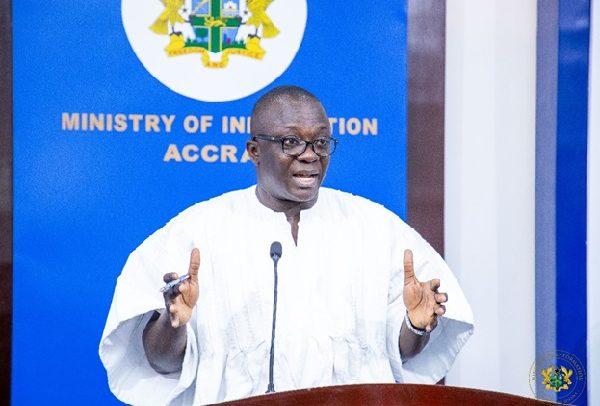Bryan Acheampong
The Minister for Food and Agriculture, Bryan Acheampong yesterday announced the distribution of food grants to over 800,000 farmers in eight drought affected regions beginning October 10, 2024.
He announced this at the Minister’s Press Briefing to update the public on the implementation of measures to address the effect of the dry spell.
The Minister stated that farmers in the affected regions would receive 25kg of rice and 100kg of maize as part of the government’s relief effort.
He also added that an online grain market was also being set up to allow the public to conveniently purchase maize and rice at affordable prices starting October 10.
He added that the distribution of inputs and food grants will be managed through the Ghana Agriculture and Agribusiness Platform (GhAAP), ensuring transparency and accountability.
He stated that a team of 3,000 personnel has also been deployed nationwide to register farmers and ensure no one is left out of the relief programme.
On long-term solutions, the Minister added that the government is calling for continued investment in agricultural resilience, with a focus on irrigation and long-term grain storage.
He emphasised that the Planting for Food and Jobs Phase 2 initiative will be crucial in safeguarding the country’s future food security.
“The government has committed to an annual irrigation investment of GH¢ 3 billion over the next decade, alongside a goal of increasing grain storage capacity by 100,000 metric tonnes per year for the next 16 years,” he added.
The Minister expressed gratitude to all stakeholders including the World Bank, ECOWAS, and local partners, for their support in addressing the crisis.
Dr. Acheampong said the dry spell underscores the importance of long-term agricultural planning and investments.
He stated that the government, with support from international partners, is committed to ensuring farmers are equipped to withstand future shocks.
“The support is expected to provide the much-needed relief to farmers and stabilise food supply in the coming months,” he emphasised.
By Ebenezer K. Amponsah


